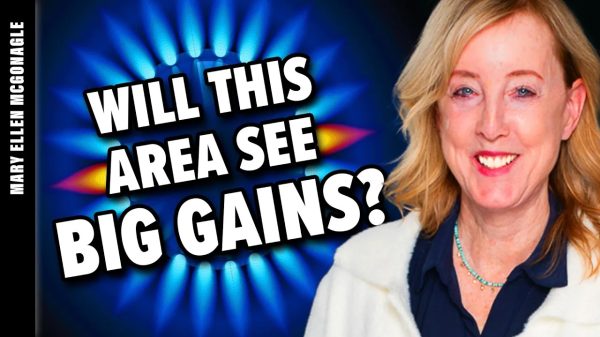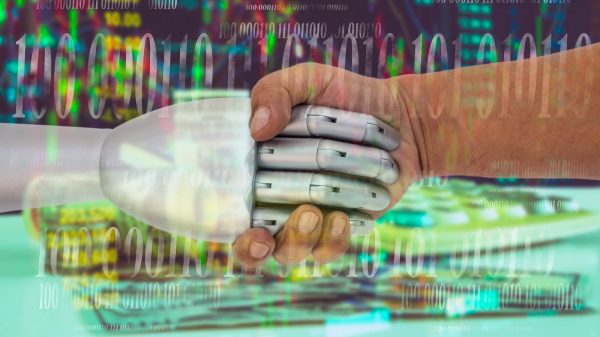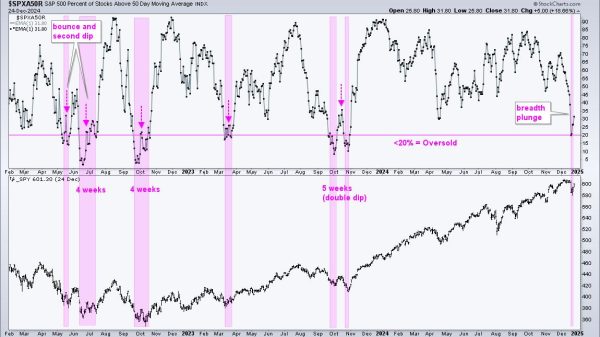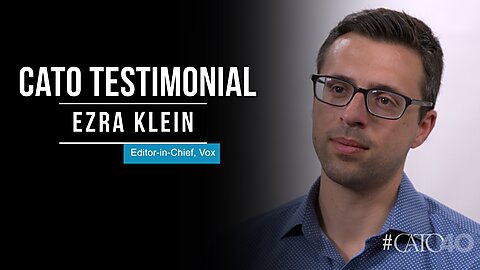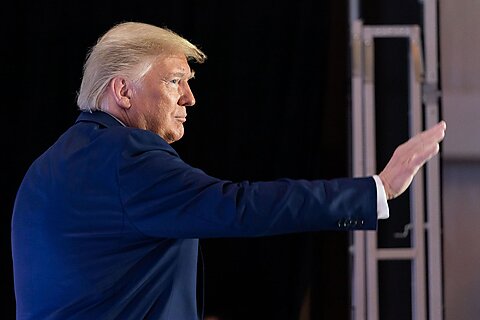Gene Healy
I have no end of uncharitable thoughts about recent American presidents; yet, when I’m cataloging their sins, the words “undue caution” have never sprung to mind. Could it fairly be said of any 21st-century president—George H. W. Bush, Barack Obama, Donald Trump, or Joe Biden—that his real flaw was being “unduly cautious in the discharge of his official duties”? When it comes to “the most powerful office in the world,” is “undue caution” a problem worth worrying about?
Chief Justice John Roberts insists that it is. In fact, the self-styled judicial “umpire” considers the specter of presidential risk aversion grave enough to justify rewriting the rules of the game. Toward that end, in Trump v. United States, Roberts conjures up a broad suite of criminal-process immunities previously unknown to our Constitution. The new privileges shield the president in the first instance, but they’re really for us—designed to ensure that we Americans will never suffer from an insufficiently energetic executive. Thanks. . . . I guess?
But if you think greater risks lie in presidential recklessness and contempt for the law, the president’s new immunities may give you pause. Just how much we should worry isn’t clear to me, in part because I’m not sure how much the historically remote threat of criminal prosecution has restrained presidents over the years. But what the Court’s just done definitely isn’t going to help.
I’m certain of this much at least: as a matter of constitutional exegesis, the chief justice’s majority opinion is creative lawyering at its worst. It’s the most flagrant instance of legislating from the bench since Harry Blackmun decamped to the Mayo Clinic medical library to bone up on obstetrics and write trimesters into the Constitution.
My colleague Walter Olson summarizes the Court’s framework:
For a range of actions exercising core executive authority, including conversations with subordinates such as the attorney general, pardons, and appointments, immunity is absolute, even if actions were taken for a corrupt purpose or as part of a conspiracy otherwise criminal.
Exercise of less-than-core executive authority is still immune, the majority writes, “unless the Government can show that applying a criminal prohibition to that act would pose no ‘dangers of intrusion on the authority and functions of the Executive Branch.’”
[Moreover,] evidence relating to immune acts [is inadmissible] even if highly probative as to the commission of other crimes for which there is no immunity.
A genuine originalist would have a hard time deriving such broad presidential immunities from the constitutional text. As Justice Sonia Sotomayor points out in her dissent, the Framers knew how to draft special protections for public officials, as they did for members of Congress in Article I, section 6. Members of the legislative branch get three express privileges: “a Compensation for their Services,” limited protection from arrest while attending a legislative session (or traveling to or from one), and civil and criminal immunity for legislative acts. As a matter of constitutional text, the president gets one: a salary “which shall neither be encreased nor diminished during the Period for which he shall have been elected.” As James Wilson, the Framer with the best claim to being the presidency’s principal architect, told the Pennsylvania Ratifying Convention in 1787: “the executive power is better to be trusted when it has no screen. . . . Far from being above the laws, he is amenable to them in his private character as a citizen, and in his public character by impeachment.”
If you’re interested in a genuine originalist’s perspective on presidential immunities, the University of Virginia’s Sai Prakash has done the best work here. His 2021 Texas Law Review article, “Prosecuting and Punishing Our Presidents,” cited by Sotomayor, shows just how “atextual and ahistorical” Roberts’ approach was. (I’ve borrowed this post’s title from the coda to Prakash’s piece).
Prakash writes that:
Before the Constitution’s ratification, no one said that it granted the presidency special immunities, temporary or otherwise. Moreover, to my knowledge, no early President claimed such protections. And the Constitution’s text contains nary a hint that our presidents have special criminal immunities of whatever sort.
Nor, Prakash argues, should we “read constitutional silence on presidential arrestability as if that muteness somehow heralded an unrivaled immunity from detention, trial, and punishment.”
So how does Chief Justice Roberts manage to get there? By channeling penumbras and emanations from “the separation of powers principles explicated in our precedent” and the president’s allegedly unique role in American life and law.
No text, no problem, says Roberts. The argument that you need to put your finger on a constitutional provision granting such a privilege is “is one that the Court rejected decades ago as ‘unpersuasive.’” He goes on to mint new criminal process immunities through bootstrapping extensions of the Court’s past grants of limited executive privileges in presidential communications and civil litigation, themselves untethered to anything graspable in the text.
Just Security has a useful decision tree guiding you through the Trump v. United States framework. But a lot remains murky. For instance, the Court holds that “the separation of powers principles explicated in our precedent necessitate at least a presumptive immunity from criminal prosecution for a President’s acts within the outer perimeter of his official responsibility.”
How far does that official-responsibility perimeter extend? Does it cover ginning up a riot in the hope of intimidating Congress into overturning an election? Maybe: It’s complicated. After all, the presidency is vast; it contains multitudes. Our president is responsible for so much, really—who’s to say what his job isn’t? Roberts:
the President oversees—and thus will frequently speak publicly about—a vast array of activities that touch on nearly every aspect of American life. . . . He is even expected to comment on those matters of public concern that may not directly implicate the activities of the Federal Government—for instance, to comfort the Nation in the wake of an emergency or tragedy. For these reasons, most of a President’s public communications are likely to fall comfortably within the outer perimeter of his official responsibilities. There may, however, be contexts in which the President, notwithstanding the prominence of his position, speaks in an unofficial capacity—perhaps as a candidate for office or party leader. To the extent that may be the case, objective analysis of “content, form, and context” will necessarily inform the inquiry. But “there is not always a clear line between [the President’s] personal and official affairs.” [emphasis added].
“The analysis therefore must be fact specific,” Roberts concludes, “and may prove to be challenging.” I’ll say! (With apologies to Justice Antonin Scalia, I’m calling this the “Sweet Mystery of Office” passage.)
The unspoken premise in the majority opinion is that where there’s a policy need, there’s a constitutional privilege. Don’t sweat the details: if a particular immunity “is required to safeguard the independence and effective functioning of the Executive Branch,” then, as the old Prego ad had it, “It’s in there!”
But as Prakash notes in his excellent (if misleadingly titled) 2015 book, Imperial from the Beginning: The Constitution of the Original Executive, “the chief executive does not have the right to any and all means that might seem to him required for carrying his powers into execution.” The president needs a lot of things to do his job: money, officers and departments that report to him, an army to be commander in chief—but constitutionally speaking, he’s only entitled to his salary. “Indeed, if all necessary powers were vested with the President as a matter of right, the President would be able to expend funds, raise armies and create offices at will.”
In “Prosecuting and Punishing Our Presidents,” Prakash allows that there may be legitimate policy reasons to provide the president some measure of immunity from criminal process, at least while he’s in office. But it’s hardly the Court’s job to conjure them from whole cloth.
Legislating from the bench isn’t the only option, however; as Prakash notes, there’s also legislating, the legitimate, old-fashioned way. “Nothing precludes Congress from creating immunities the Constitution itself never established.” It could, via the Necessary and Proper Clause, grant the president everything the Roberts Court thinks he needs, or—moving with all due caution—enact “more targeted immunities”:
It could permit some prosecutions, say for non-jailable offenses, but bar prosecutions that might yield jail time. . . . Statutory solutions are superior. As compared to a constitutionally grounded immunity, statutes are easier to enact and repeal. If it subsequently appears that the genuine problem is not persecution of our presidents but their perceived criminality while in office, Congress can inter its statutory shields. Alternatively, if a minor tweak is needed here or there, Congress can readily fine-tune its law, broadening it in one area and contracting it in another.
In the days before the Court published its opinion, Trump:
escalated his vows to prosecute his political opponents, circulating posts on his social media website invoking “televised military tribunals” and calling for the jailing of President Biden, Vice President Kamala Harris, Senators Mitch McConnell and Chuck Schumer and former Vice President Mike Pence, among other high-profile politicians.”
How much did the possibility of criminal prosecution for official and quasi-official acts restrain Trump from making good on such threats last time around? Thanks to Roberts—whom no one can accuse of being “unduly cautious in the discharge of his official duties”—we may get to find out.







